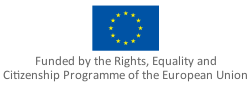
Microsite ADR
Main Activities
- Regional conference: Organisation of a regional conference to ensure that the development of the two main outputs of the project, the toolkit and the training programme, are informed by (a) knowledge of the challenges faced by both child suspects and defendants in criminal proceedings and the lawyers who represent them, and (b) interdisciplinary expertise on the skills required by defence lawyers when representing children.
The conference will provide the opportunity for a wide range of experts (including juvenile justice experts; lawyers, judges, prosecutors, NGOs and academics, as well as social workers and child psychologists) to share examples of good practice and inform the content of the toolkit and training programme. A conference report will be produced as a record of the expert input collaged during the conference. - Toolkit and training programme: The training materials, with both in-person and online components, can be used in a sustainable and replicable way to train lawyers across the EU in the knowledge and skills required effectively to represent child suspects and defendants in criminal proceedings.
They are based on the perceptions of EU defence practitioners regarding the challenges faced by child suspects and defendants in criminal proceedings (including case examples), the challenges which lawyers face in providing effective legal presentation to child suspects and defendants, and the current training opportunities available to them.
As well as this, the materials are based on research about existing analysis on the experience of child suspects and defendants in criminal proceedings, the perspectives of children on their experiences in criminal proceedings, and existing practice on the training of lawyers in this area.
- Production of the toolkit: The toolkit sets out relevant international and regional standards, including a guide to the EU Directive, guidance on the practical application of those standards, practical checklists for defence lawyers to use when representing child suspects and defendants, and information on how to access international and regional avenues of redress.
- Production of the in-person training programme: Includes an agenda, sample slides, case studies, group exercises and assessments to be used during the two-day training programme for defence lawyers. It offers guidance for training providers on effective marketing of the programme, adaptation of the programme to the specific needs in their jurisdiction, and practical tips for the delivery of the programme.
- Production of the online training programme: Includes the materials produced for the in-person trainings, as well as short videos from expert trainers. - Regional training course: The two-day regional training course introduces bar associations from all 28 Member States to the project training materials and encourages them to deliver similar training programmes in their own jurisdictions. Adopting a train-the-trainer model, the two-day course demonstrates to participants how to use and tailor the training materials for future training opportunities.
A regional training report will identify any problems with the training materials which can be addressed through further revision, and will develop practical tips on delivering training to be included in the final version of the training materials. - National training courses: Country-specific training to 80 lawyers, 40 lawyers in each of Hungary and Romania, will increase their knowledge of relevant international and regional standards and improve their practical skills, in order to ensure the effective participation of child suspects and defendants.
Country-specific needs will have been identified through research on the challenges faced by child suspects and defendants in criminal proceedings and current approaches to the training of defence lawyers on this area of practice, as well as on lawyers' perception on their training needs.
The training materials will be adapted to the specific needs in Hungary and Romania, both of which are jurisdictions where defence lawyers currently receive limited training on how to represent effectively child suspects and defendants.
A short national training report will be produced on each national training course, identifying any problems with the training materials and setting out practical tips on development and delivery of country-specific training programmes for inclusion in the final version of the training materials.
